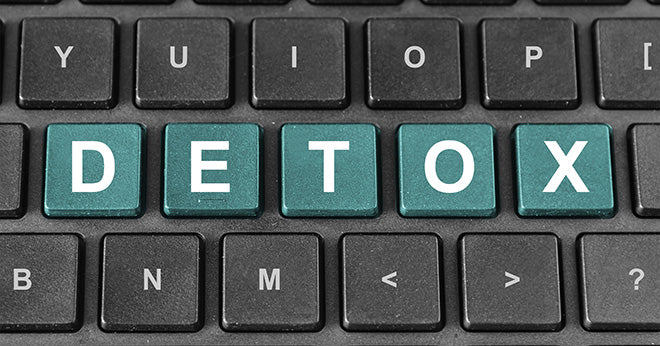When the last leaves of autumn drop and the cold chill of winter sets in, many people start to feel a sense of melancholy. Combine that with fewer hours of sunlight and less time with nature and that sad mood might deepen into a feeling of depression that’s persistent and pervasive. Even the months after Christmas and the New Year affect many people, as their mood dies down with the holiday spirit. Although the “winter blues” are common, it’s estimated that around 19 million Americans suffer from depression at any point during the year.
Depressed individuals, in addition to their own suffering, find that their families, friends, colleagues, community and church members all become affected too. Their productivity deteriorates along with their social lives. But there is hope. The path to wellness is understanding what depression is and how to fight it using a safe, natural and sustainable approach.
What is depression?
Depression is a serious illness that can negatively affect the way you feel, act and think. Per the Anxiety & Depression Association of America, there are three major types of depression: Major Depression (the most severe), Persistent Depressive Disorder (less severe, but can occur for longer than two years) and Bipolar Disorder (characterized by shifts in the mood cycle, from highs to lows). Depression is very different from feelings of short-lived sadness or grief after a difficult life event because it doesn’t ease up – it continues, typically for two weeks or longer. In more serious cases, depression can last for months or even years. It can make a huge impact on someone’s quality of life, not to mention the lives of loved ones. Suddenly, you might not be able to shake those feelings of sadness or low self-worth. You might start to lose interest in the things you once loved to do. Depression can feel like a disabling weight on your shoulders, constantly holding you down and making the world look darker. What are the most common symptoms of depression?
According to the American Psychiatric Association, depression can be characterized by the following symptoms:
Depression doesn’t discriminate. It can affect anyone at any stage of life, even if life seems to be going well. Research has shown that brain chemistry, genetics, personalities and environmental factors can all play a role in causing depression.
The National Institute of Mental Health states, “Depression, even the most severe cases, can be effectively treated.” That’s great news. But is there an alternative to popping pills like Prozac or Paxil? As described above, one of the top reasons why people become depressed is due to a chemical imbalance. As with all illnesses and health conditions, your body functions at its best when it’s supported by a strong army of raw nutrients while simultaneously freeing itself of toxins. Focusing on the right nutrition from a plant-based diet is the most effective way to live a healthier lifestyle and get your body the vitamins and minerals it needs to stave off depression. “Nature’s Anti-Depressants”
Depression is a serious illness that can negatively affect the way you feel, act and think. Per the Anxiety & Depression Association of America, there are three major types of depression: Major Depression (the most severe), Persistent Depressive Disorder (less severe, but can occur for longer than two years) and Bipolar Disorder (characterized by shifts in the mood cycle, from highs to lows). Depression is very different from feelings of short-lived sadness or grief after a difficult life event because it doesn’t ease up – it continues, typically for two weeks or longer. In more serious cases, depression can last for months or even years. It can make a huge impact on someone’s quality of life, not to mention the lives of loved ones. Suddenly, you might not be able to shake those feelings of sadness or low self-worth. You might start to lose interest in the things you once loved to do. Depression can feel like a disabling weight on your shoulders, constantly holding you down and making the world look darker. What are the most common symptoms of depression?
According to the American Psychiatric Association, depression can be characterized by the following symptoms:
- Deep sadness
- Notable loss of interest or pleasure in activities
- Fatigue or loss of energy
- Feelings of low self-worth or inappropriate guilt
- Changes in appetite that cause weight gain or losses, but are unrelated to diet
- Insomnia or oversleeping
- Restlessness or irritability
- Difficulty making decisions, thinking or concentrating
- Thoughts of death or suicide or an attempted suicide
Depression doesn’t discriminate. It can affect anyone at any stage of life, even if life seems to be going well. Research has shown that brain chemistry, genetics, personalities and environmental factors can all play a role in causing depression.
- Brain chemistry: Serotonin and norepinephrine are chemicals in the brain that affect our mood. If these chemicals are not being produced or affected by some sort of abnormality, they can cause symptoms of depression or anxiety. Many times, chemical imbalance is caused by the prevalent toxic chemicals in things we eat. Processed foods, not to mention BPA-laced cans and food packaging, are loaded with chemicals that affect our hormones. Refined sugar and sugar substitutes also play a major role in disrupting normal communication with the brain.
- Genetics: If someone in your family has depression, you might have a predisposition to it.
- Personality: Sometimes, personalities can make a person more vulnerable to depression. For example, people who are more pessimistic, tend to be overwhelmed by stress or have low self-esteem, are at an increased risk for depression.
- Environmental factors: If a person resides in an environment that constantly exposes them to violence, abuse, neglect or poverty, they can become more susceptible to depression.
- Other causes: Medical conditions such as a brain tumor or a vitamin deficiency can cause depression. There are also specific types of depression, such as post-partum depression experienced by new mothers.
The National Institute of Mental Health states, “Depression, even the most severe cases, can be effectively treated.” That’s great news. But is there an alternative to popping pills like Prozac or Paxil? As described above, one of the top reasons why people become depressed is due to a chemical imbalance. As with all illnesses and health conditions, your body functions at its best when it’s supported by a strong army of raw nutrients while simultaneously freeing itself of toxins. Focusing on the right nutrition from a plant-based diet is the most effective way to live a healthier lifestyle and get your body the vitamins and minerals it needs to stave off depression. “Nature’s Anti-Depressants”
- Omega 3s: Low intake of omega 3 fatty acids is widely acknowledged as one of the top nutritional causes of depression. Omega 3s support the cellular membranes (particularly in the central nervous system), which directly affect brain chemistry. Fish oil and flax seeds are great sources of Omega 3s. If you decide to use fish oil supplements, ensure the brand you use is tested for heavy metals (specifically mercury) and that it isn’t rancid as can be the case with many capsules.
- Fresh fruits and vegetables: Vegetables especially are packed with essential vitamins and minerals. Keep fruit consumption to a minimum, as they are rife with sugar. Low levels of folic acid have been linked to depression, so focus on leafy greens and legumes, which have higher concentrations of this important vitamin.
- Vegetable juice: Juicing is a great way to get the maximum benefits without having to consume pounds of fruits and vegetables a day. When vegetables are juiced, the cells are broken open, allowing for your body to absorb them more easily.
- Vitamin D: Sunshine deficiency can be a contributing factor in depression. Vitamin D is the major nutrient we get from sunlight. If you live someplace with very little sunlight, try B-Flax-D, which contains Vitamin D2 along with two other nutrients that are essential for quelling depression.
- Vitamin B-12: Low vitamin B-12, which helps with the replication of cells, has been associated with depression.
- Curcumin: A recent study found that curcumin is a highly effective supplement in the treatment of depression.
- Exercise: Regular exercise can help you feel better and help the brain release serotonin – the feel-good chemical.








